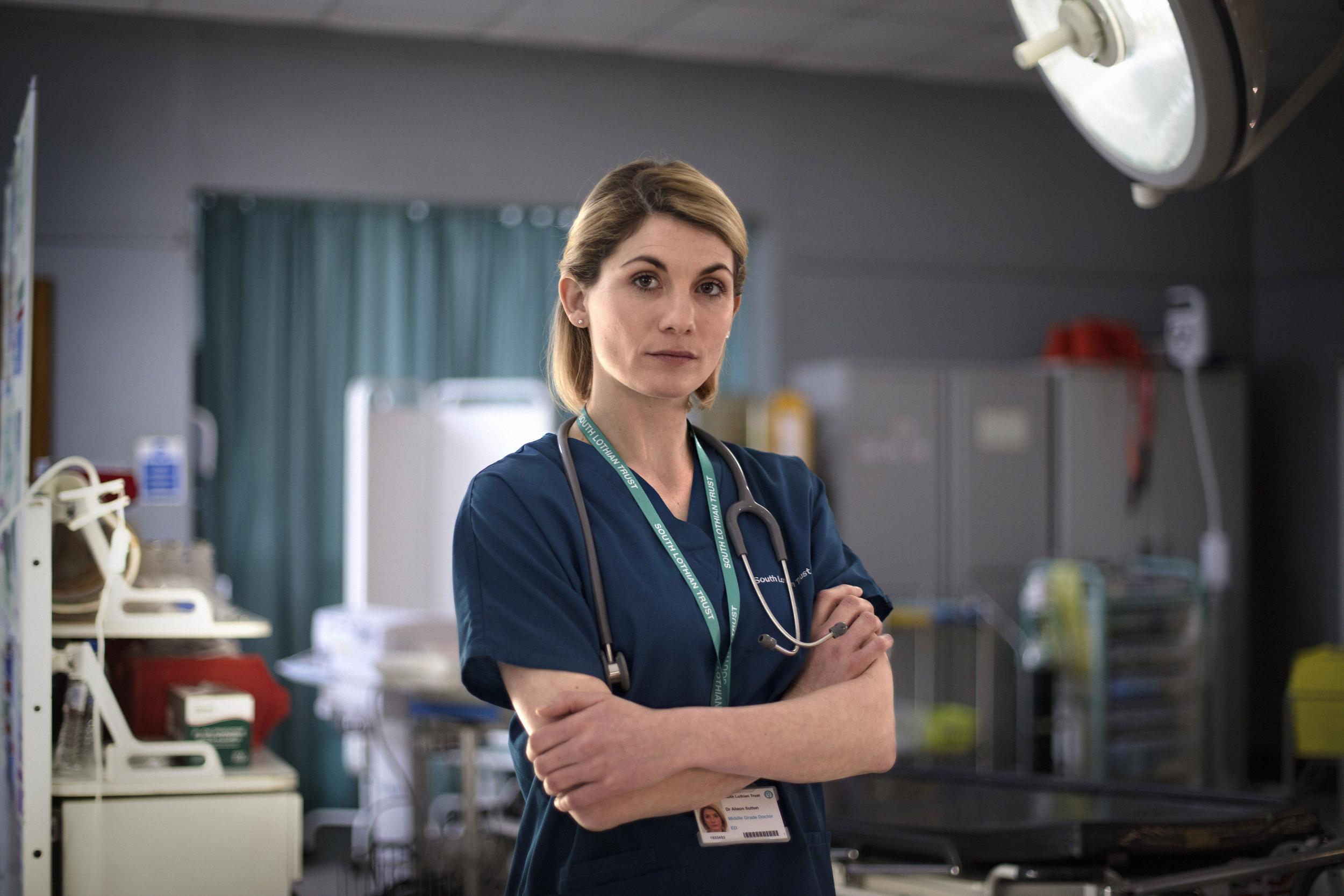Last night's TV review, Trust Me (BBC1): tense NHS drama
Plus: Get a House for Free (Channel 4)

One of the few insights into the arts that managed to get through my thick skull and stay there decades after I left school is that the key to great drama is the suspension of disbelief. Something like that anyway.
For most of the time I was watching Trust Me, I did so with a mounting sense of disbelief, and, thus, simply could not get into what seemed a promising piece of telly drama. It’s about a gifted nursing sister who tries to turn whistle-blower about abuse of NHS patients, fails, also grows tired of her relationship with her daughter’s father and, generally fed up with her lot, opts to start a new life. A radically new life, that is, as she attempts to steal the identity of a doctor friend who is emigrating to New Zealand, including her professional qualification. So Jodie Whittaker, famously soon to be playing Doctor Who, appears this time as Nurse Cath Hardacre “playing” another doctor, i.e. impersonating her hospital friend Dr Alison Sutton, who is, so far as we can see, on the other side of the world and oblivious to this subterfuge.
The problems with this plot came teeming so hard into my head that I couldn’t pay proper attention to the drama unfolding before me. The suspension of disbelief didn’t come. Doesn’t the new hospital she cons into giving her a job as a doctor have an HR Department that checks on CVs? Where does her salary get paid? After all, getting a fraudulent bank account is pretty tricky for an amateur these days. What about the ID for her digs? And wasn't there anyone nosey enough to check out her entry, with picture, on LinkedIn? Facebook? Twitter?
However, right at the end of this first episode of four, the writers redeemed themselves by having precisely these questions come teeming down hard on the head of the hapless Jodie Whittaker/Nurse Hardacre/Dr Sutton. She started to crack under the mountain of fibs, and her competence as a doctor – well established in theatre and on the wards – starts to be undermined. I’d have preferred for the questions to start creeping up on her a little more stealthily, but it was worth sticking with to the end. Whittaker’s performance was solid enough to make one care about her fate, which is the point.
I suppose my only vestigial grumble is that the journalist figure (from the whistleblowing bit) lied so freely. I know the Leveson inquiry uncovered some terrible practices, but I found this caricature of a hack unfair (actually unbelievable). Anyway, let’s see if his lies were in the public interest as he pursues the Whittaker/Hardacre/Sutton character, and hope that he is in fact an agent of justice, as all us journalists would like to be. Believe it or not.
Scarcely believable too was the premise of Channel 4’s latest social experiment Get a House for Free. The premise was more or less that; a free flat to the most deserving case to come forward, as judged by the donor, a property developer named Marco Robinson. When we learn that Mr Robinson comes from a humble background himself, with a few brushes with homelessness as a kid, it becomes more believable. When we discover he’s worth about £25m, then it becomes much more explicable. You should bear in mind, you see, that the very smart and spacious fully furnished new three-bedroom flat in Preston that will be someone’s lovely new base is worth (readers in London look away now) £120,000, which again puts matters in perspective.
In cold print it looks like a rather distasteful exercise, a very rich man playing a sort of god to the last three applicants out of the 8,000 who put themselves forward, all with no doubt strong if not heart-breaking arguments of their own. How can anyone exercise fair judgement between, as here, a single mum, a partially-sighted health worker or a family of Palestinian-Syrian refugees? To Robinson's great credit he offered the "losers" meaningful help with accommodation anyway, but the flat went to the lone parent Holly and her baby Beth, whose circumstances most resembled those of the young Marco.
He didn’t solve the housing crisis, except for those six people in Lancashire, but it did tell us something about the degradation and indignity of sleeping rough and the insecurity of renting. More appositely, it proved why we shouldn’t really want a country where philanthropy takes the role of society – if only because it isn’t up to the sheer scale of the task. Anyway, lots of tears but some happy endings.
Join our commenting forum
Join thought-provoking conversations, follow other Independent readers and see their replies
Comments
Bookmark popover
Removed from bookmarks